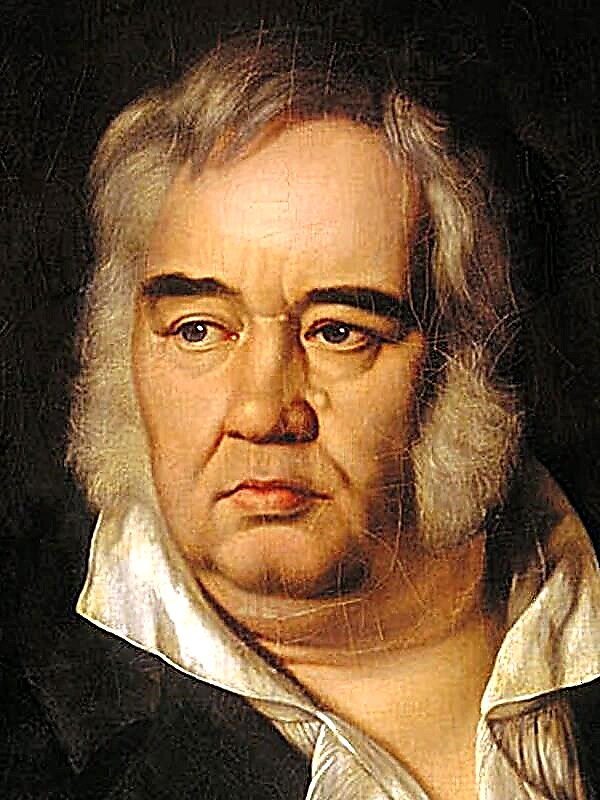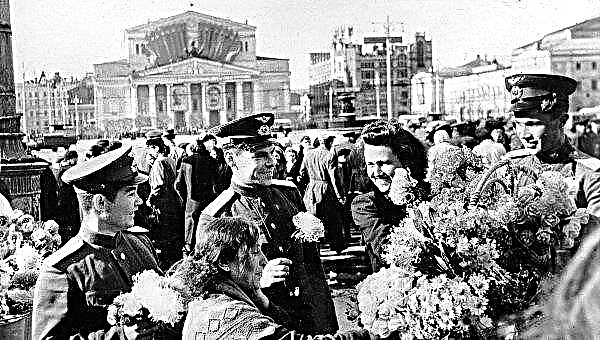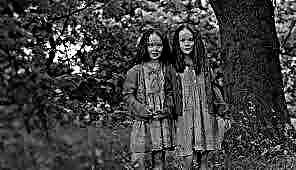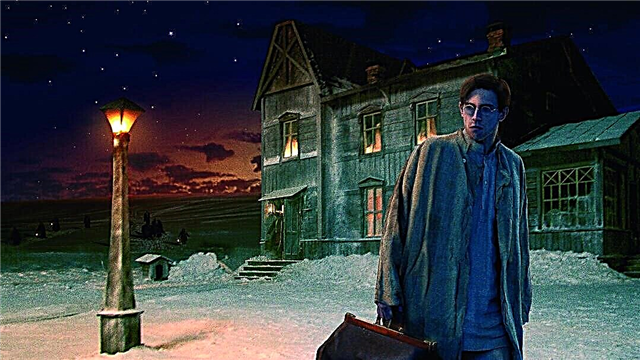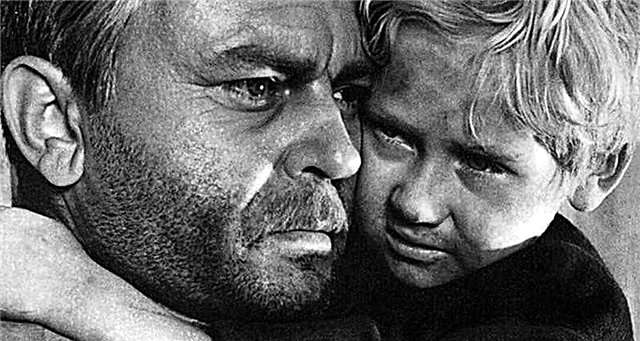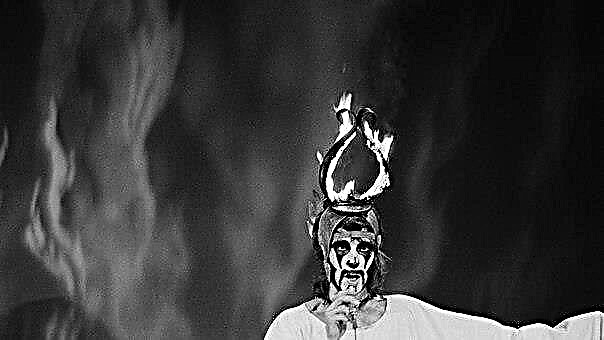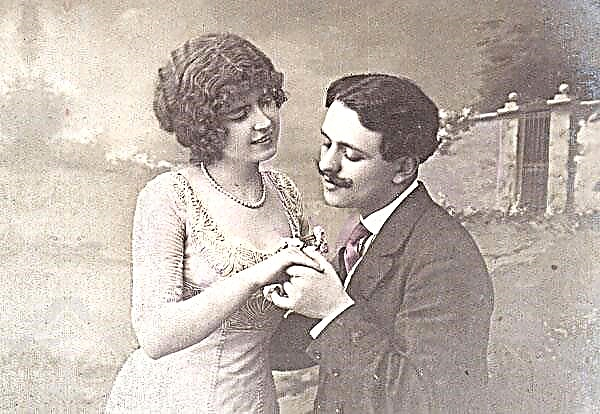Former hussar, forty-year-old retired colonel Yegor Ilyich Rostanev is the owner of a rich and well-equipped estate Stepanchikova, where he lives with his mother, the widow of General Krahotkin, unmarried sister, daughter Sasha, fifteen years old, and son, Ilya, eight years old. Rostanev's wife died a few years ago. The house is filled with engrafters, among whom Foma Fomich Opiskin stands out, who had previously been a jester “because of a piece <...> of bread” from Krahotkin, but who managed to completely subordinate to his influence the general and her retinue from “overripe” girls thanks to reading them “soul-saving books”, interpretation of “Christian virtues”, dreams, “masterful” condemnation of others, as well as unbridled self-praise. “The personification of the most boundless self-esteem”, “festering” because of previous humiliations and “squeezing jealousy and poison at every meeting, at every stranger's luck”, the insignificant Opiskin finds ideal conditions in Rostanev’s house for manifesting his nature. Kind, conscientious, compliant, self-incriminating master Stepanchikova by nature is not able to assert his own dignity, independence and interests. His main desire is peace and “universal happiness” in the house; the satisfaction of others is a deep spiritual need, for which he is ready to sacrifice almost everything. Convinced of the kindness and nobility of human nature, he endlessly justifies even the most evil, selfish acts of people, does not want to believe in evil designs and motives. As a result, the colonel is a victim of the moral tyranny of his movers and self-taught mother who treat him like a delinquent child. "The low soul, coming out from under oppression, itself oppresses." Rostanev, on the other hand, honors both insolents with people of “highest qualities” and exalted nobility.
Now Thomas and the general want to force the colonel to marry a middle-aged, but very rich girl Tatyana Ivanovna, who was invited to stay in Stepanchikovo for this purpose. This kind, innocent creature is just a toy in the hands of schemers. Suddenly exalted by a rich inheritance from humiliating vegetation, she “moved” with her mind. "Mania for Amorous Affairs" makes her behavior funny and strange; any rogue with the help of cheap "romance" effects can lure, rob and throw her. Pitying Tatyana Ivanovna, Rostanev, however, resists plans to enrich her family, as she is in love with the young governess of her children, Nastasya Evgrafovna Ezhevikina. A girl from a poor family, she received upbringing and education at the expense of the colonel, who had previously loved her as a daughter. Nastya herself is cordially attached to the father of Sasha and Ilyusha. But both do not admit to themselves and each other in their love: Rostanev - because of the difference in age, Nastya - because of the difference in social status. Nevertheless, for half a year their mutual sympathy has not been a secret for spies who sensed a threat to their dominance. In fact, Nastya, unlike an older friend, is openly outraged by the tyranny and antics of Opiskin and clearly will not tolerate this, becoming the mistress of Stepanchikov. Insolents demand the shameful expulsion of the girl from home, hiding behind unscrupulous demagogy about "phenomenal voluptuousness" in fact of the delicate and chaste Rostanev and concern for the morality of Nastya, who supposedly has a bad influence on children. Ready for endless concessions, the colonel shows some firmness in this matter: he decides to marry Nastenka to his twenty-two-year-old nephew Sergei Alexandrovich, who recently graduated from the university, and calls him by letter from St. Petersburg, the Young man also studied at the expense of a loving uncle, who now dreams of a happy life together in village with both of its pupils.
An Petersburger who arrived in Stepanchikovo on an early July morning finds here a real "lunatic asylum". The rich owner trembles before the poor instigator, fearing to “offend” him with his superiority. He secretly meets with his own serfs, who heard about the intention to “give” them to the despot Opiskin. In desperation, they beg the master not to give them an "insult." He agrees, wondering why Thomas, forcing the peasants to learn French and astronomy, is "not so sweet to them." Sergei Aleksandrovich, like his uncle, at first suspects in Ospiskin an “extraordinary nature”, but is “embittered” by circumstances and dreams of “reconciling him with a person” with respect and kindness. Having changed clothes, he goes to the teahouse, where the whole society has gathered: the general with his daughter and the coilers, the poor young man Obnoskin with his mother, the poor relative
Mizinchikov, Tatyana Ivanovna, Nastya and children. Thomas is not, because; he is "angry" at Rostanev for his intransigence on the issue of marriage. “Other people at home” are “angry”, accusing the Colonel out loud of “gloomy egoism”, “killing mama” and other nonsense. The good man is seriously worried and awkwardly justified. One Sasha speaks the truth about Opiskin: "he is stupid, capricious, messy, ungrateful, cruel, tyrant, gossip, liar," "he will eat us all." Claiming an extraordinary mind, talent and knowledge, Opiskin is also jealous of Rostanev’s “learned” nephew, as a result of which the poor newcomer is subjected to an extremely unfriendly reception from the general.
Finally, Thomas enters: this is a "puffy little man" "about fifty years old," with hypocritical manners and "impudent self-confidence" on his face. Everyone is fawning in front of him. He begins to mock the yard boy Falalei, who fell out of favor with him because of his beauty and general’s disposition towards him. Desperate to learn Falalei in French, Thomas decides to "ennoble" his dreams. Unable to lie, Falalei always has a “rude, peasant” dream “about a white bull”, in which Foma sees the “corrupting” influence of Rostanev. The day before, Opiskin managed to catch his victim in another “crime” - performing an “indecent” dance about a Komarino man. The torturer tramples with pleasure the “living beefsteak” on the grounds that he knows “Rus” and “Rus” “knows” him. Trying to intervene in a “scientist”, the colonel’s conversation rudely breaks off and publicly recounts: “Do the housework, drink tea, but <...> leave the literature alone.” Thomas himself imagines himself a writer on the eve of the all-Russian "glory". Then he swoops over the valet Gavrilo, forcing him to answer in French in all. This is ridiculous, and the poor “crow” cannot stand it: “I haven’t seen such a shame as now, I have never seen one above myself!” Outraged by the "rebellion" Thomas, screaming, runs away. Everyone goes to console him.
In the garden, Sergei Alexandrovich meets with his alleged bride, receives a refusal and finds out about her intention to leave Stepanchikovo on the same day. Sounds of scandal are heard from the windows. The colonel does not want to give in to Nastya and decides to part with Opiskin in a “noble way, without any humiliation” for the latter. During a private conversation in the tea room, he generously offers Thomas fifteen thousand and promises to buy a house for him in the city. Opiskin scatters money, pretending to be incorruptible virtue. The colonel, it turns out, reproaches him with a piece of bread and is vain with his wealth. Poor Rostanev repents, begs for forgiveness. It is possible only on condition that he will humble his “pride” and call the engraver “your excellence”, that is, recognize him worthy of the “general rank”. The unfortunate good man goes to this humiliation. The temporarily peaceful Thomas "forgives" him and Gavril.
Late in the evening, Mizinchikov arrives in the outhouse to Sergey Alexandrovich in the vain hope of finding a paid assistant in the youth. His “idea” is to take away Tatyana Ivanovna, marry her and take possession of her money. By the way, this will save Rostanev from an unwanted marriage. Mizinchikov promises to deal with a sick woman humanely, giving her a decent life and peace of mind. True, he is afraid that Obnoskin will precede him, to whom he inadvertently opened up.
After the departure of Mizinchikov, an uncle appears with a footman Vidoplyasov. This is the “secretary” of Opiskin, a confused fool who understands the “nobleness of the soul” as pretentiousness and contempt for everything national and natural. Suffering ridicule from the mongrel for his arrogance, he begs to change his "dissonant" surname to Oleandrov, Ulanov, Essbuketov, etc. He calls his poems "Vidoplyasov's cries." Rostanev informs his nephew that he “settled” everything: Nastya remains, as Sergei Alexandrovich was declared her fiance, and uncle himself will make an offer to Tatyana Ivanovna tomorrow. Upon learning of the upcoming departure of Nastya, the Colonel rushes to stop her.
The nephew follows him through the night garden and sees Tatyana Ivanovna and Obnoskin in the gazebo, who clearly stole Mizinchikov’s “idea”. Soon he also meets his uncle, alarmed: Thomas had just caught him in a moment of kissing with Nastya, who had confessed his love to him. Intending to make an offer to his beloved girl tomorrow, the colonel is nevertheless afraid of the conviction of Opiskin and the "chime" that he can raise. At night, he writes to “brother and friend,” begging him not to divulge a date in the garden and to promote the general’s consent to his marriage with Nastya.
At dawn, Tatyana Ivanovna’s escape with Obnoskin is discovered. Rostanev rushes in pursuit and pulls the insane out of the hands of a fraudster. She is back in Stepanchikovo.
In the afternoon, a general meeting takes place in the rooms of Thomas Fomich on the occasion of Ilyusha's name day. In the midst of the holiday, Opiskin, confident that he will not be allowed to go anywhere, plays the comedy of “exile” from the estate in a “simple, masculine cart,” with a “bundle”. “Finally,” he tears Yegor Ilyich’s letter and notifies those present that he saw him at night with Nastya “in the garden, under the bushes.” A furious colonel throws out a boor who clearly did not expect such a denouement. Gavrila takes him away in a cart. Rostanev asks his mother for blessings for marriage, but she does not listen to her son and only begs to return Thomas Fomich. The colonel agrees, provided that he publicly apologizes to Nastya. Meanwhile, the frightened and pacified Opiskin returns himself - Rostanev finds him “already in the village”.
The trick is doing a new “trick”: it turns out he is the well-wisher of Nastya, the defender of her “innocence”, which was threatened by the “unbridled passions” of the colonel. The simple-minded Rostanev feels guilty, and Thomas unexpectedly for all joins the hands of lovers. The generals bless them. Those present in delight thank Opiskin for arranging "universal happiness." The former "rebels" are asking for forgiveness from him.
After the wedding, Thomas reigned even more firmly in the house: “sour, stingy, broken, angry, cursing, but the reverence for him“ fortunate ”did not <...> decrease”. The generalsha died after three years, Opiskin - after seven. The compositions found after his death turned out to be "extraordinary rubbish." Rostanev and Nastya had no children.

